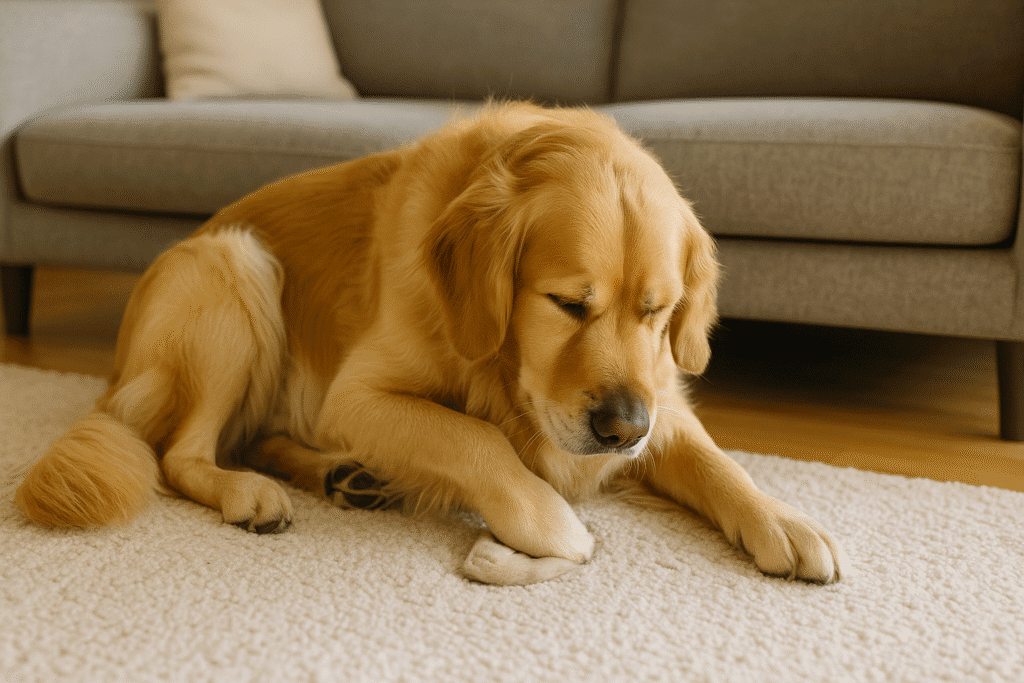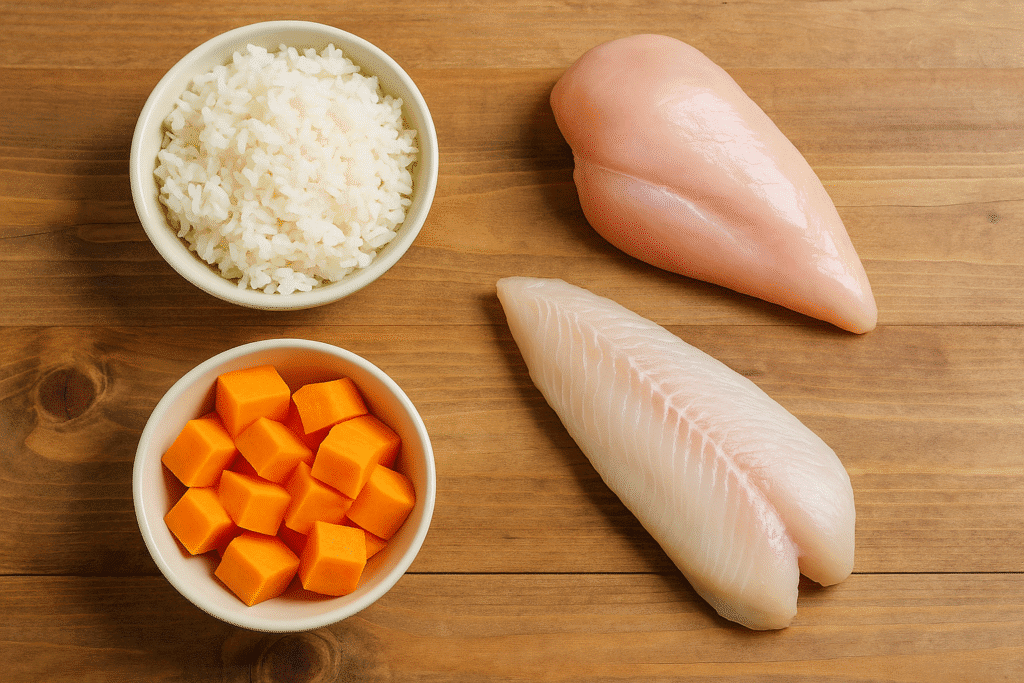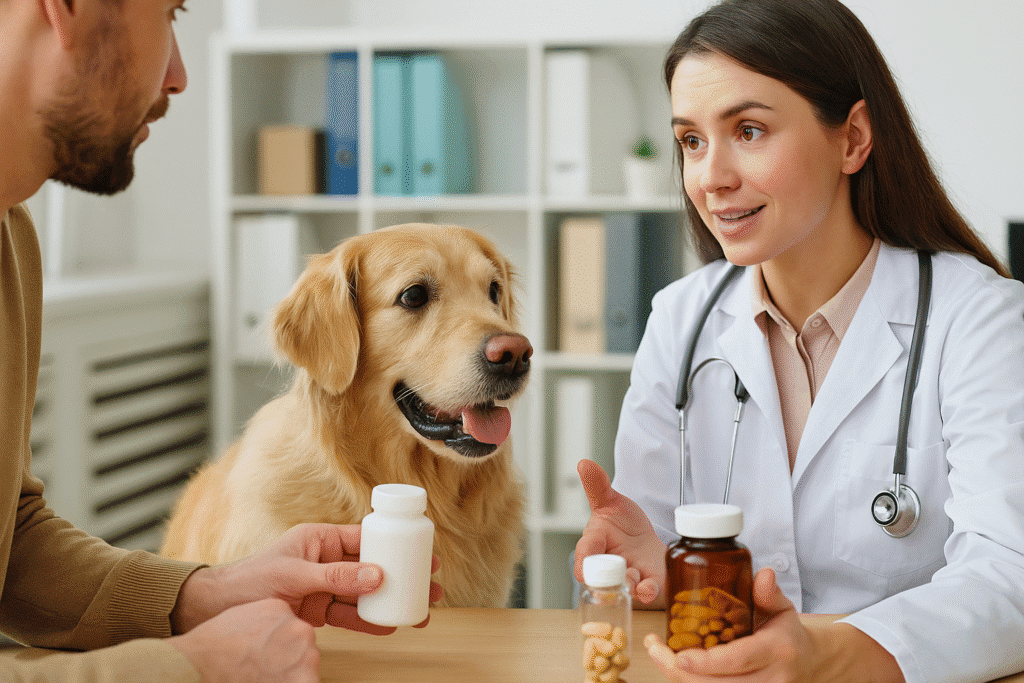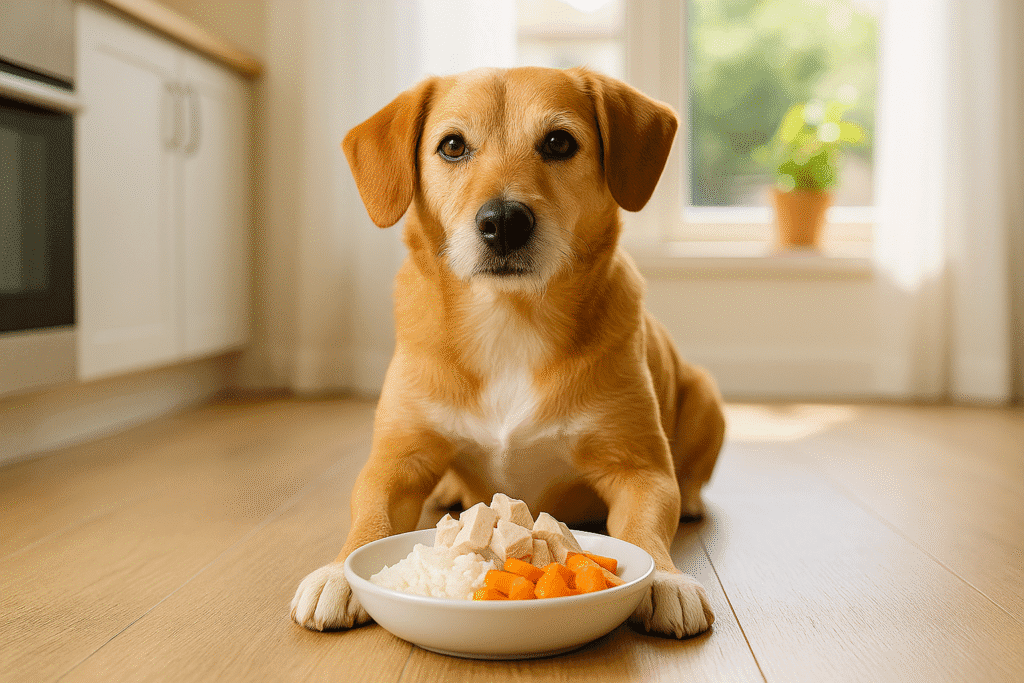If your dog has been diagnosed with pancreatitis, the right nutrition can make a world of difference. This guide explains how a low-fat diet supports recovery, which foods to avoid, and vet-approved diet strategies to help your dog heal faster and stay healthy long-term.
What is Pancreatitis in Dogs?
Pancreatitis in dogs occurs when the pancreas becomes inflamed, disrupting normal digestion and causing severe abdominal pain, vomiting, and loss of appetite. It can appear suddenly (acute pancreatitis) or progress gradually (chronic pancreatitis). Left untreated, it can lead to serious complications.

Common Symptoms
- Vomiting and diarrhea
- Loss of appetite
- Abdominal pain (hunched posture)
- Lethargy and weakness
- Dehydration
Early diagnosis and proper diet are crucial for preventing complications. Read more about common dog health conditions that may overlap with pancreatitis symptoms.
Why a Low-Fat Diet is Essential
One of the primary triggers of pancreatitis is high-fat food. Dogs with pancreatitis struggle to digest fats, which puts extra stress on the pancreas. A low-fat diet reduces inflammation, allows healing, and prevents flare-ups.
Vet-Approved Benefits of Low-Fat Diets
- Reduces strain on the pancreas
- Helps control vomiting and diarrhea
- Supports gradual weight loss in overweight dogs
- Decreases chances of recurrence
Best Foods for Dogs with Pancreatitis
Commercial Low-Fat Dog Foods
Many veterinary brands offer prescription low-fat diets specifically designed for dogs with digestive issues. Look for labels marked “low-fat” or “gastrointestinal support.”
Homemade Low-Fat Diet Options
- Boiled chicken breast (skinless, no seasoning)
- White fish (cod, tilapia)
- Pumpkin or sweet potatoes (fiber-rich, easy to digest)
- Plain white rice (gentle on the stomach)
- Egg whites (boiled, not fried)
Avoid fatty meats, fried foods, and table scraps. Learn more in our guide on toxic foods for dogs and cats to protect your pet.

Feeding Guidelines During Recovery
Dogs with pancreatitis should eat smaller, more frequent meals rather than one or two large meals. This reduces pancreatic workload and aids digestion.
- Feed 3–4 small meals per day
- Keep fat content under 8% (dry matter basis)
- Provide fresh water at all times
- Follow your vet’s portion size recommendations
Supplements and Supportive Care
In addition to a low-fat diet, certain supplements may help dogs with pancreatitis:
- Probiotics to support gut health (Dog Probiotics Guide)
- Omega-3 fatty acids (in moderation) for reducing inflammation (Omega-3 Benefits)
- Digestive enzymes if recommended by your veterinarian
Preventing Pancreatitis Relapse
Pancreatitis can recur if dietary and lifestyle adjustments aren’t made. Prevention tips include:
- Avoid giving table scraps or fatty treats
- Stick to a consistent low-fat diet
- Encourage light daily exercise
- Schedule routine vet checkups
See also our guide on managing chronic conditions in dogs for additional long-term care tips.
When to See a Veterinarian
If your dog shows recurring symptoms like vomiting, refusal to eat, or lethargy, seek veterinary help immediately. Severe cases of pancreatitis require hospitalization, IV fluids, and strict dietary monitoring.

FAQ: People Also Ask About Pancreatitis in Dogs
What is the life expectancy of a dog with pancreatitis?
With proper treatment and diet, many dogs live long and healthy lives, though recurring flare-ups can shorten life expectancy.
Can I give treats to my dog with pancreatitis?
Yes, but only low-fat treats such as boiled chicken bites, carrots, or specialized vet-approved snacks.
Is pancreatitis in dogs curable?
It’s not fully curable but can be managed long-term with diet, lifestyle changes, and regular vet care.
How long does it take a dog to recover from pancreatitis?
Mild cases may resolve within a few days of supportive care, while chronic conditions may require lifelong dietary adjustments.
What foods should be avoided?
Avoid fatty meats, bacon, sausages, cheese, fried foods, and anything high in grease or fat.
Conclusion & CTA
Pancreatitis in dogs can be a scary diagnosis, but the right low-fat diet makes recovery and long-term health possible. With patience, careful feeding, and regular veterinary support, your dog can live a comfortable life. 👉 Check more dog health guides here for expert advice on common conditions.

